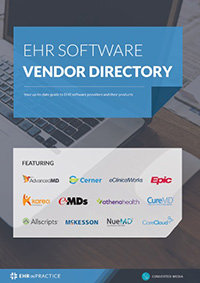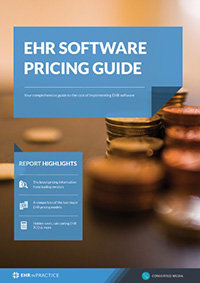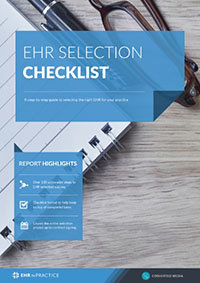How will open EHR APIs affect healthcare IT innovation?
The free exchange of data factors heavily in the future direction of health care as the exchange of healthcare data across care settings and between EHRs and external medical devices begin to factor more heavily into care delivery. Evidence of this emphasis was seen recently in when Congress passed the 21st Century Cares Act, a law whose partial focus was to facilitate more data based, modern health care practices.
The foundation of data-based medicine relies on the free flow and exchange of healthcare information. The Act among many other health care related provisions emphasised the need for the unhindered exchange of health care information particularly represented by the provisions found in the law that are crafted to deter the practice of information blocking which the law defines as “practices that restrict authorized access, exchange, or use under applicable State or Federal law for transitions between certified health IT; implementing health IT in “nonstandard ways” that is likely to substantially increase the complexity or burden of accessing, exchanging, or using electronic health information.” Given this emphasis on interoperability among regulators and among advocates of data driven medicine open APIs provide a strong driver behind this movement.
Open APIs and the free exchange of healthcare information
This desire is reflected in a statement published in the Journal of American Health Information Management Association Lauren Ellis Riplinger, JD, senior director of federal relations for AHIMA. “If we truly want to move healthcare into the 21st Century, HIM professionals know we need access to timely, accurate, and actionable data. This legislation helps advance that.”
Use this EHR comparison guide to find the right EHR for your practice
Open APIs are a significant part of the free exchange of healthcare information as they allow a third party a developer with access to a proprietary software application to access internal data. In effect when health data can be shared between devices and care settings in an efficient manner the quality of care can be enhanced, further when anonymized data can be used for several worthwhile functions such as use by researchers, the public health community who could harvest data for the purposes of public-private health partnerships to improve community health outcomes.
Open APIs could further accelerate the work of developers who according to the Harvard Business Review, which argues that the more wide use of open APIs “would lead to the development of an entirely new group of healthcare innovators: developers who do not have particular expertise in health care but, when given secure access to clinical data from the industry, could create tools of significant value.” Further as the Harvard Business Review notes, APIs could be used by individuals or organizations to engage in “citizen science” by performing analysis of trends in utilization, cost, or outcomes using a large population of aggregate, anonymized medical records.
Security concerns
The case for open APIs is always tempered by security concerns and what limited arguments EHR vendors may make about limiting access to EHR data. Further the finance and retail industries have also widely adapted to the use of open APIs, which reasons that they could certainly be more widely employed in healthcare. However, given the regulatory environment which is moving toward the open exchange of data and improved security measures the arguments against generally fall flat considering the substantial benefits outlined above.
Free white paper

EHR Software Comparison
A hand-picked comparison of leading EHR software systems

Featured white papers
Related articles
-

Three 2018 digital health predictions from a physician and CMO
Expert advice on what to expect in the digital health sphere for the coming year
-

Meaningful Use over the next two years: what to expect
How Meaningful Use will evolve, and what you can do to prepare
-

Three developments to expect in health IT in 2018
How can we expect health IT to change over the course of the coming year?




